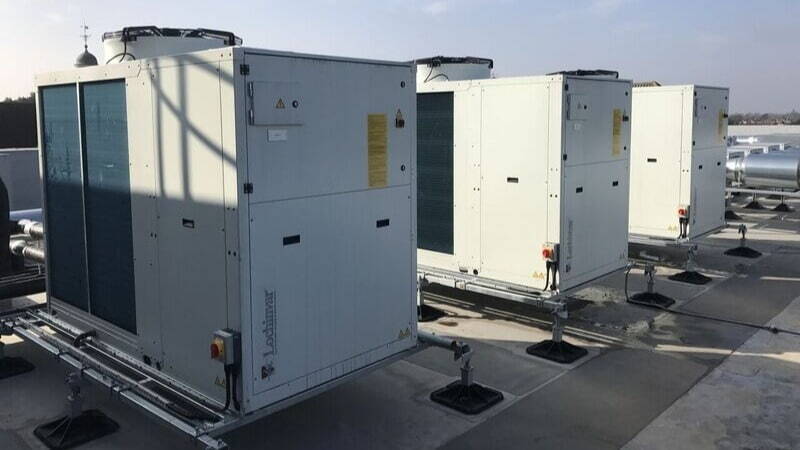Connecting...
Where next for the commercial heat pump market?
almost 3 years ago Empty Jason Thornhill

Most commercial heating manufacturers have now successfully developed their own heat pump products and taken them to market. However, as the domestic market has shown, the path ahead is far from straightforward.
What lessons can be learnt from the domestic heat pump market?
The government is striving to install 600,000 pumps a year to residential buildings by 2028. The target has been set to help the UK reach net zero by 2050, although some climate change advisers have insisted the target is too low and would need to be closer to one million a year to be effective in decarbonising the country. Furthermore, in 2021 there were just 43,000 heat-pump sales. Add to this the fact that heat pumps are less effective in older, poorly insulated properties and there is a lack of installers, the commercial heat pump market is eyeing developments closely.
What trends could we see in the commercial heat pump market?
As heat pumps become more widely specified for commercial projects, expect the conversation to focus on four key areas:
Natural refrigerants
The hydrofluorocarbon (HFC) refrigerant typically used in single-split heat pumps, such as R410A, has a much higher global warming potential (GWP) than CO2. Even small leakages can therefore negate any decarbonisation benefit. It is likely that regulation will limit the use of fluorinated greenhouse gases (F-gases) like HFCs, perfluorocarbons (PFCs) and sulphur hexafluoride (SF6). Manufacturers and specifiers expect to see a drive towards the use of gases with lower GWP such as propane and CO2 and will be keen to use these alternatives to futureproof their products and protect against future regulatory issues.
Technical support
Heat pump systems are still in their infancy, particularly in the commercial sphere, which means the demand for technical information and support is going to be high both before, during and after installation. Commercial heat pump sales engineers and their teams will be called upon to support customers with detailed design input prior to sale. Feasibility studies will be required to check the availability of power supplies and the suitability of the site, not to mention whether the planned system will deliver adequate heating and hot water for occupants. Installers will also need support from manufacturers throughout installation and commissioning.
Stock and parts
Heat pump technology is an emerging market and many manufacturers are currently unable to guarantee availability of products and parts for some models. Stock levels will take some time to stabilise as companies work out how much demand there is and how long projects take to come to fruition. In the meantime, shortages and delays are to be expected and this could hinder sector growth.
Pricing
Heat pumps are still a very expensive option for commercial applications. A project cost of over £100K is not unusual for something that would have been around a third of the price for gas. As heat pump specification becomes the norm for commercial settings and manufacturers improve production efficiency and availability of product, prices will come down. Competition will also help to drive down prices.
Interested in a career in commercial heat pump sales? Check out our latest jobs:
Commercial Heating Sales Jobs
Renewable Energy Sales Jobs
Photo courtesy of Lochinvar
